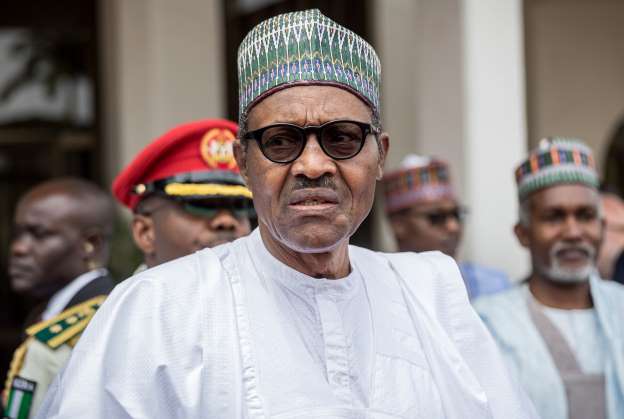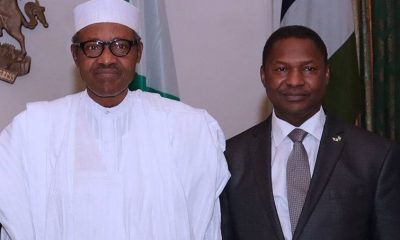Politics
Buhari Reveals To U.S. Why He Refused To Sign Electoral Bill

President Muhammadu Buhari has revealed that a major reason for his declining assent to the electoral bill was to prevent technological tampering as as alleged to have occurred in the 2016 US election, with Russia at the centre of the allegations.
Buhari reiterated his determination to ensure a level-playing field for all contestants into political offices in 2019 general elections.
The President said this when he received a delegation from International Republican and National Democratic Institute, United States of America, at the Presidential Villa, Abuja, on Monday.
Buhari said: “I am glad you are here to assess our pre-election preparations. It reminds me of the visit by the then Secretary of State, John Kerry, before the 2015 polls. We appreciate the concern of America for stability in developing countries.
“Having run for president three times, ending up at the Supreme Court all the three times before God and technology made a way for me the fourth time, I know what it is to be cheated at the polls.
“What they used to do was just to award votes, and tell anyone who was dissatisfied to go to court. But we won’t do that.
“I am prepared to give the opposition the opportunities I was not given in the past.’’
President Buhari assured the visitors that he had told the heads of the security agencies not to be partisan, but to do their work professionally, and allow the will of the people to prevail.
While stressing that the governing All Progressives Congress would keep faith with its priorities of securing the country, reviving the economy, and fighting corruption, the President said he was happy that the opposition had not been able to successfully fault the focal areas of the government.
“We have done fairly well in the areas we focused on. We know how many local government areas in the North-East were under Boko Haram occupation before we came.
“That does not happen again, save for cowardly attacks, using young girls as suicide bombers.
“Other areas of security challenge like farmers/herdsmen clashes are receiving attention, and would be sorted out as much as possible,’’ he added.
On the Electoral Bill that was not assented to, the President said: “Time is against us. We are extremely vulnerable, and need to be careful that messages are not hijacked and figures tampered with, while being transmitted electronically.
“Even the Russians were accused of tampering with American election, so we will remain conventional and use electronic transmission in subsequent elections.’’
The leader of the American delegation, Ambassador Linda-Thomas Greenfield, said they had met with the media, civil society, and political parties and concerns expressed included fears of security agencies being partisan in the forthcoming elections and suspected non-commitment to free and fair elections by key stakeholders.
She said they also cited the delayed budget for the electoral umpire, Independent National Electoral Commission, and the non-signing of the new Electoral Bill.











